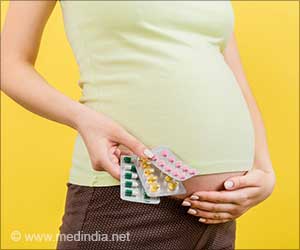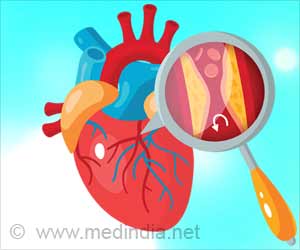- Vitamins like D, B12, and folic acid are crucial for fertility in men and women
- Deficiencies linked to irregular cycles, decreased sperm quality
- Comprehensive approach needed: address nutritional and non-nutritional factors
Understanding the Role of Vitamins on Fertility for Men and Women
1. Vitamin D:This sunshine vitamin plays an important role in the fertility of both men and women.
Vitamin D deficiency affects both male and female fertility. #vitamin #fertility #medindia’
PCOS, affecting a significant percentage of women of reproductive age, presents a myriad of challenges to fertility. Among these challenges, vitamin D deficiency emerges as a notable aggravator. Studies have highlighted the importance of adequate vitamin D levels for maintaining optimal reproductive hormone levels in both genders.
Notably, in men, vitamin D deficiency has been linked to diminished sperm motility and lower testosterone levels. For women, it can disrupt the menstrual cycle and impair ovarian function, complicating the path to conception (1✔ ✔Trusted Source
Vitamin D and polycystic ovary syndrome (PCOS): a review
Go to source).
2. Vitamin B12:
It is another vital nutrient that plays a critical role in DNA synthesis and cellular metabolism, essential for reproductive health.
Women:
Deficiency in this vitamin has been associated with ovulatory dysfunction and irregular menstrual cycles in women.
Men:
In men, low levels of vitamin B12 can lead to decreased sperm count and motility, posing a potential barrier to fertility (2✔ ✔Trusted Source
The effects of dietary vitamin B12 deficiency on sperm maturation in developing and growing male rats
Go to source).
This vitamin is indispensable for cell division and DNA synthesis, making it crucial for reproductive health and fetal development.
Women:
Inadequate levels of folic acid have been linked to neural tube defects in newborns and an increased risk of miscarriage in women.
Folic acid deficiency has been associated with decreased sperm count and increased sperm abnormalities in men, further underscoring its importance in fertility (3✔ ✔Trusted Source
Effects of folic acid and folic acid plus zinc supplements on the sperm characteristics and pregnancy outcomes of infertile men: A systematic review and meta-analysis
Go to source).
4. Vitamin C:
This vitamin is renowned for its antioxidant properties.
Men:
It plays a pivotal role in protecting sperm cells from oxidative damage. Its deficiency has been correlated with decreased sperm quality and motility in men.
Women:
It can lead to impaired ovarian function in women, potentially reducing fertility (4✔ ✔Trusted Source
Antioxidant supplements and semen parameters: An evidence based review
Go to source).
Expert voices in the field echo the significance of addressing vitamin deficiencies in the context of fertility. They emphasize that while the mechanisms may vary across different vitamins, their impact on fertility remains undeniable.
Beyond vitamin D and vitamin C, other essential vitamins such as vitamin E, vitamin A, and vitamin B6 also play crucial roles in reproductive health. Deficiencies in these vitamins have been associated with a spectrum of fertility issues, ranging from impaired sperm quality to disrupted hormone regulation in both genders (5✔ ✔Trusted Source
Micronutrient deficiencies in pregnancy worldwide: health effects and prevention
Go to source).
Impact of Vitamin Deficiency in Men and Women: Table
|
Deficient Vitamin |
Role in Reproductive Health |
Impact on Women |
Impact on Men |
|
Vitamin D |
Essential for hormone regulation |
Disrupts menstrual cycle and ovarian function |
Decreased sperm motility and testosterone levels |
|
Vitamin B12 |
Critical for DNA synthesis |
Ovulatory dysfunction and irregular menstrual cycles |
Decreased sperm count and motility |
|
Folic Acid |
Crucial for cell division |
Neural tube defects, miscarriage |
Decreased sperm count, increased abnormalities |
|
Vitamin C |
Protects sperm from oxidative damage |
Impaired ovarian function, reduced fertility |
Decreased sperm quality, motility, increased DNA damage |
|
Vitamin E |
Protects sperm from oxidative damage |
Decreased sperm quality, fertility issues |
|
|
Vitamin A |
Essential for sex hormone production |
Disrupted hormone production, impaired sperm and egg development |
|
|
Vitamin B6 |
Involved in hormone regulation |
Irregular menstrual cycles, difficulty conceiving |
|
However, it's imperative to recognize that while vitamin deficiencies can contribute to fertility challenges, they are often just one piece of the puzzle. Factors such as age, overall health, lifestyle choices, and underlying medical conditions also exert significant influence on fertility. Therefore, a comprehensive approach that addresses both nutritional and non-nutritional factors is essential for optimizing fertility outcomes.
In conclusion, understanding the intricate interplay between vitamins and fertility offers valuable insights for individuals striving to conceive. By addressing vitamin deficiencies and adopting holistic approaches to reproductive health, individuals can enhance their chances of realizing their dream of parenthood.
References:
- Vitamin D and polycystic ovary syndrome (PCOS): a review - (https://www.ncbi.nlm.nih.gov/pmc/articles/PMC10328709/)
- The effects of dietary vitamin B12 deficiency on sperm maturation in developing and growing male rats - (https://pubmed.ncbi.nlm.nih.gov/12692404/)
- Effects of folic acid and folic acid plus zinc supplements on the sperm characteristics and pregnancy outcomes of infertile men: A systematic review and meta-analysis - (https://www.ncbi.nlm.nih.gov/pmc/articles/PMC10395467/)
- Antioxidant supplements and semen parameters: An evidence based review - (https://www.ncbi.nlm.nih.gov/pmc/articles/PMC5203687/)
- Micronutrient deficiencies in pregnancy worldwide: health effects and prevention - (https://www.ncbi.nlm.nih.gov/pmc/articles/PMC4927329/)
Source-Medindia
















